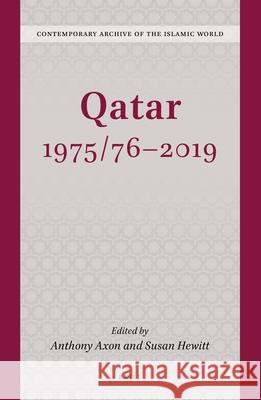Qatar 1975/76-2019 » książka
Qatar 1975/76-2019
ISBN-13: 9789004444324 / Angielski / Twarda / 2020 / 472 str.
The fourth in this series, the Contemporary Archive of the Islamic World (CAIW), this title draws on the resources of Cambridge-based World of Information, which since 1975 has followed the politics and economics of the region. Qatar’s documented history begins in the mid-19th Century. Its location established it as having close, if differing links to Bahrain, Kuwait and Saudi Arabia. Notionally under Ottoman rule, Qatar did not become a de facto protectorate of Great Britain until some time after the end of the Ottoman empire. The discovery of oil in Qatar happened later than was the case with its neighbours. However, the discovery of substantial oil deposits, and later of enormous gas reserves changed Qatar beyond recognition, allowing it to claim in the 1980s that its inhabitants were the richest people on earth. Still a semi-feudal monarchy, it gained full independence in 1971 but was initially considered to be the least developed state in the Gulf. By the 21st century many close neighbours felt that in a number of respects Qatar was becoming an unreliable partner. To the extent that in 2017 a number of its fellow Gulf Cooperation Council (GCC) members, as well as other states – notably Egypt - broke off diplomatic relations.











